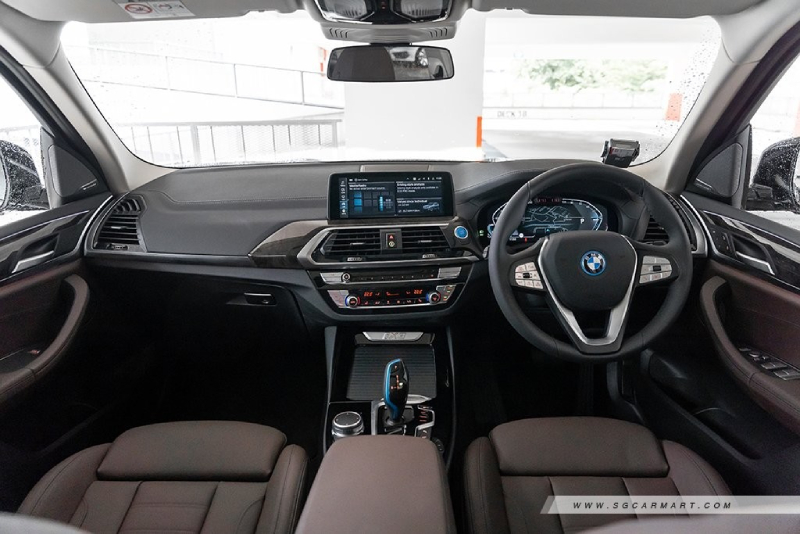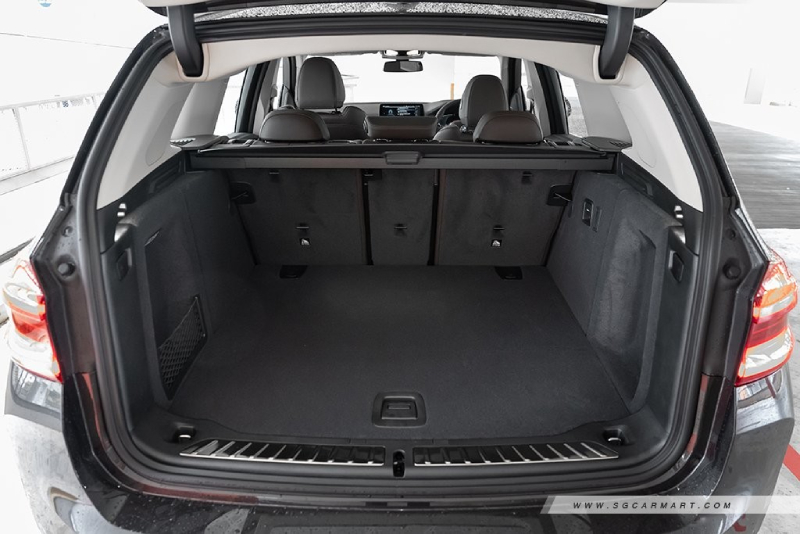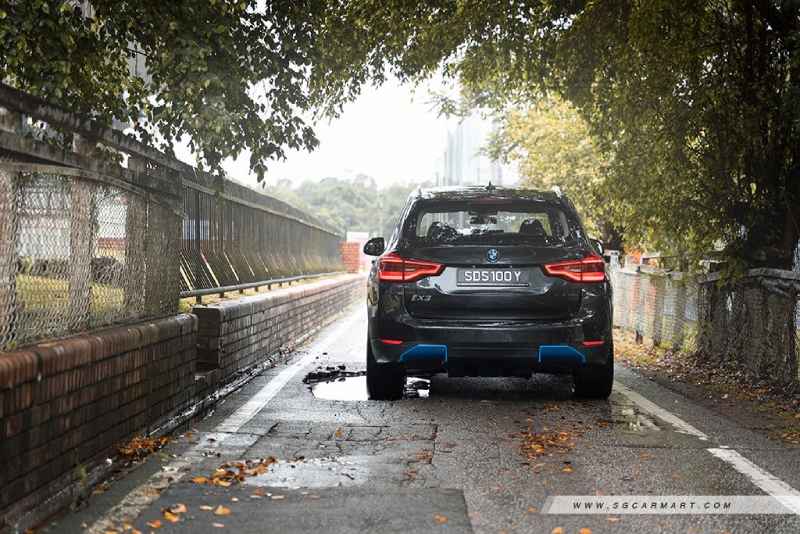Car review: BMW iX3 impresses with its electric capability and efficiency


Since BMW launched the i3 back in 2013, electrification has formed a steady part of the brand's product portfolio. We've seen plug-in hybrid models rolled out across multiple model lines, and BMW i plans to have 25 electrified vehicles by 2023.
That said, the arrival of the all electric iX3 actually feels a little bit late. The Jaguar I-PACE was launched in 2019, the Audi e-tron was launched in Singapore about 13 months ago, and the Mercedes-Benz EQC was launched close to two months ago.
Is the iX3 a little late to the party now?
The iX3 is pretty uninteresting to look at. Basically, take an X3, change up the front grille, put on a different set of rims, and that's more or less the iX3. It's a tad underwhelming, I know.
Inside, its again rather underwhelming. It's basically an X3 interior save for a couple of blue flourishes (the blue start/stop button, around the steering wheel BMW logo, as well as on the gear shifter).

Not that there's anything inherently wrong with an X3 interior. It's luxurious, comfortable and relatively high-tech. However, it is dated - the X3 is already a few years old, and it shows.
This car doesn't have the new interior that you'll find on the latest BMW models (it still has the older gear lever, for example), so it definitely lacks that feeling of futuristic functionality.

Also, like the EQC, you can tell that there was a petrol car here prior to it becoming electric. The rear seats are okay, but not as spacious as a fully bespoke EV should be.
Also, the centre transmission tunnel is still present at the rear, even though there isn't a transmission shaft any more.
It is on the road that the true capability of the iX3 reveals itself.
[[nid:539877]]
There's plenty of accelerative power, obviously.
The electric motor puts out 210kW and 400Nm of torque, with power sent strictly to the rear wheels. Because the iX3 only uses one motor, it's not as heavy as you might expect.
Compared to the EQC, its most obvious rival (another petrol car turned electric), the iX3 feels much lighter at lower speeds.
This definitely aids in manoeuvrability and general driving ease.
Also, the suspension is great. It's a bit on the firm side (as with all BMWs), but the firmness actually helps here. It better copes with the weight of the car, so over harsher bumps, the ride is well-controlled.
The iX3 also drives well. It's light on its feet, easy to handle, and it drives with recognisable dynamic verve you come to expect from a BMW.
The battery capability is definitely impressive. The iX3 has a 74kWh battery that promises between 459km to 520km of range. Over one weekend of driving, I clocked a consumption figure that would have put me at 408km on a full charge.

That's actually really stellar. The e-tron (95kWh) and I-PACE (90kWh) both have larger batteries, but deliver less range. The EQC has a slightly larger battery capacity (80kWh) than the iX3, and also delivers range under 400km.
Also impressive is the driving tech on board the car. You get fairly standard features like adaptive cruise control and lane keep assist, but the iX3 goes one step further.
On top of being able to steer itself, the car can also help you to lane change when you have Assisted Driving turned on. Hit the indicator, and if the lane is clear, the car will lane change on its own volition. One step closer to autonomous driving.

One slight downside of the iX3 is the regeneration settings. You don't have paddle shifters that you can manually adjust the regeneration. So, you can either preselect from three settings (Low, Medium, High), or use the Adaptive mode.
Here, it will adjust the regeneration accordingly - low to none at highway speeds, higher when approaching junctions or when there's a car in front.

The system uses both the sat nav and the on-board cameras to adjust accordingly. The only downside of this is that the regen can, on occasion, kick in quite hard when you're not quite expecting it.
It's clear that with the iX3, BMW has spent most of its resources on the hardware. And it shows.
The EV tech here is impressive - you get solid efficiency and usability, excellent driveability, and effortless ease-of-use.

The driving tech is also impressive - the autonomous technologies are definitely one step up from the direct competition (Tesla not included, at least not quite yet).
[[nid:536511]]
All of this bodes well for upcoming electric offerings, including the iX and the i4.
And, best of all, the price. At $254,888 (as of Aug 25, 2021), on top of being significantly cheaper than all its electric luxury SUVs competitors (the other three are above the $300k mark), the iX3 is also cheaper than the base petrol X3.
This makes it a really compelling choice within this segment.
So, while BMW might be slightly late to the electric SUV game, it's clearly pushing hard to undercut the competition price-wise, while also delivering a product that stands on its own technical merits. And with the new iX3, it's got just the right product to do that.
This article was first published in sgCarMart.